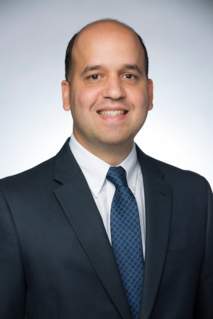Texas State researcher receives RAPID grant from NSF for COVID-19 study
Jayme Blaschke | May 22, 2020

Eduardo Pérez, an associate professor in the Ingram School of Engineering and director of the Integrated Modeling and Optimization for Service Systems (iMOSS) lab at Texas State University, has received a Rapid Response Research (RAPID) grant from the National Science Foundation to document COVID-19 preparedness levels in Texas hospitals.
Over the course of the one year, $57,000 grant, Pérez will work with the Texas Department of State Health Services (DSHS) to collect the relevant data. Pérez and the DSHS have previously worked together to identify the strengths and weaknesses of the trauma care network in Texas.
“The COVID-19 pandemic is impacting the capacity of Texas hospitals which are on the frontlines of the fight against the coronavirus. Typically, if the patient is ill enough to be admitted into the hospital, they will develop symptoms that need the kind of resources a trauma facility will have,” Pérez said. “We’re studying how the pandemic is going to affect the trauma network in Texas. If this pandemic gets worse, do we have enough resources to take care of the patients? We will use the research insights to help planning for future events.”
Because Texas is so vast, the study is restricted to four regions of the state—two rural and two non-rural. The research utilizes big data analysis to examine the resources available for combatting the pandemic, everything from the number of intensive care unit beds and ventilators available to the amount of personal protective equipment and coronavirus tests on hand.
“We want to compare differences between rural and non-rural areas. Are there discrepancies in the access that they have? Also, how is the pandemic spread out in rural areas vs non rural areas?” Pérez said. “When we put all of these together, we’re studying the trend of the pandemic but we are interested in the impact of the pandemic on the trauma network in the state of Texas.
“Using this information, we can plan for future expansion of the trauma network and decide where more resources are needed and prepare better for these types of events,” he said. “That’s why the DSHS is interested in the data. Any insight we can provide is very valuable.”
Share this article
For more information, contact University Communications:Jayme Blaschke, 512-245-2555 Sandy Pantlik, 512-245-2922 |